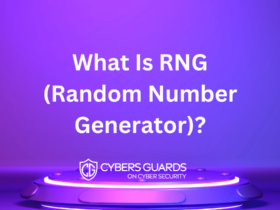Security breaches in casinos can be detrimental not only to the casino’s reputation but also to the customers who trust the casino with their money and personal information. With the increasing popularity of online casinos, it is essential to have robust security measures in place to prevent and investigate security breaches. In this article, we will discuss best practices and lessons learned in investigating security breaches in casinos.
Types of Security Breaches
Before we discuss best practices, let’s first look at the different types of security breaches that can occur in a casino. These include:
- Malware and hacking attacks that can affect the casino’s system, software, and data.
- Insider attacks, where an employee or someone with access to the casino’s system abuses their privileges to commit fraud, steal information, or manipulate games.
- Social engineering attacks, where hackers use various tactics to trick employees into revealing sensitive information or performing actions that can compromise the casino’s security.
Investigating Security Breaches: Best Practices
1. Incident Response Plan
The first and most crucial step in investigating security breaches is having an incident response plan. An incident response plan outlines the steps to be taken in the event of a security breach, including how to detect, analyze, contain, eradicate, and recover from the breach. The plan should also designate roles and responsibilities for different team members and departments involved in the response.
2. Preservation of Evidence
Preserving evidence is critical in investigating security breaches. It involves collecting, analyzing, and documenting evidence related to the breach, such as log files, network traffic data, and system files. This evidence can help determine the cause and scope of the breach and identify the parties responsible.
3. Collaboration with Law Enforcement Agencies
In severe cases of security breaches, collaboration with law enforcement agencies is necessary. Casinos should have established relationships with relevant agencies and law enforcement personnel to report the breach and seek their assistance in investigating the incident. Additionally, having a legal team to advise on compliance and liability issues is essential.
4. Customer Communication
Communication with customers is vital during and after a security breach. Casinos should promptly inform their customers of the breach, the actions taken to address it, and any steps customers should take to protect themselves. Customers’ trust is crucial to a casino’s reputation, and transparent communication can help maintain that trust.
Lessons Learned
5. Importance of Employee Training
One of the most significant lessons learned from past security breaches is the importance of employee training. Employees should be trained on how to recognize and prevent security breaches, how to respond to incidents, and the consequences of noncompliance. Regular training and awareness programs can reduce the risk of insider attacks and social engineering attacks.
6. Need for Regular Security Audits
Regular security audits can help identify vulnerabilities and areas for improvement in a casino’s security system. Audits can also ensure compliance with industry standards and regulations. It is crucial to conduct audits regularly, including penetration testing, vulnerability assessments, and compliance audits.
Protecting Yourself While Playing at Online Casinos
While casinos have a responsibility to maintain secure systems and protect their customers’ data, players also have a role to play in protecting themselves. Here are some best practices for players to follow to stay safe while playing at online casinos:
1. Use Reputable Casinos
The first and most important step is to choose serious online casinos. Look for casinos with a valid license, a good reputation, and positive reviews from other players. Avoid casinos that have a history of security breaches or unethical practices.
2. Protect Your Personal Information
Protecting your personal information is crucial. Only provide your personal and financial information to the casino if you trust them. Use strong passwords and two-factor authentication to secure your account. Avoid sharing your login credentials with anyone.
3. Use Secure Payment Methods
When making transactions, use secure payment methods like credit cards, e-wallets, or bank transfers. Avoid using public Wi-Fi or unsecured networks when making transactions. Be aware of any additional fees or charges that may apply.
4. Monitor Your Account
Regularly monitoring your account for any suspicious activity is essential. Check your account balance and transaction history regularly. If you notice any unauthorized transactions or suspicious activity, report it to the casino immediately.
5. Be Aware of Scams
Be aware of scams that target casino players, such as phishing scams or fake casino promotions. Scammers may try to trick you into revealing your personal or financial information. Be wary of unsolicited emails or messages that ask for your login credentials or payment details.
Conclusion
In conclusion, security breaches can have severe consequences for casinos and their customers. The best way to prevent breaches is to have robust security measures in place, including an incident response plan, evidence preservation, collaboration with law enforcement agencies, and customer communication. Employee training and regular security audits are also essential for maintaining a secure environment. Casinos need to prioritize cybersecurity to protect their reputation, their customers’ trust, and their financial assets. On the other hand, players can protect themselves while playing at online casinos by choosing reputable casinos, protecting their personal information, using secure payment methods, monitoring their account, and being aware of scams. By following these best practices, players can enjoy a safe and secure gaming experience while playing at online casinos.










FIND US ON SOCIALS